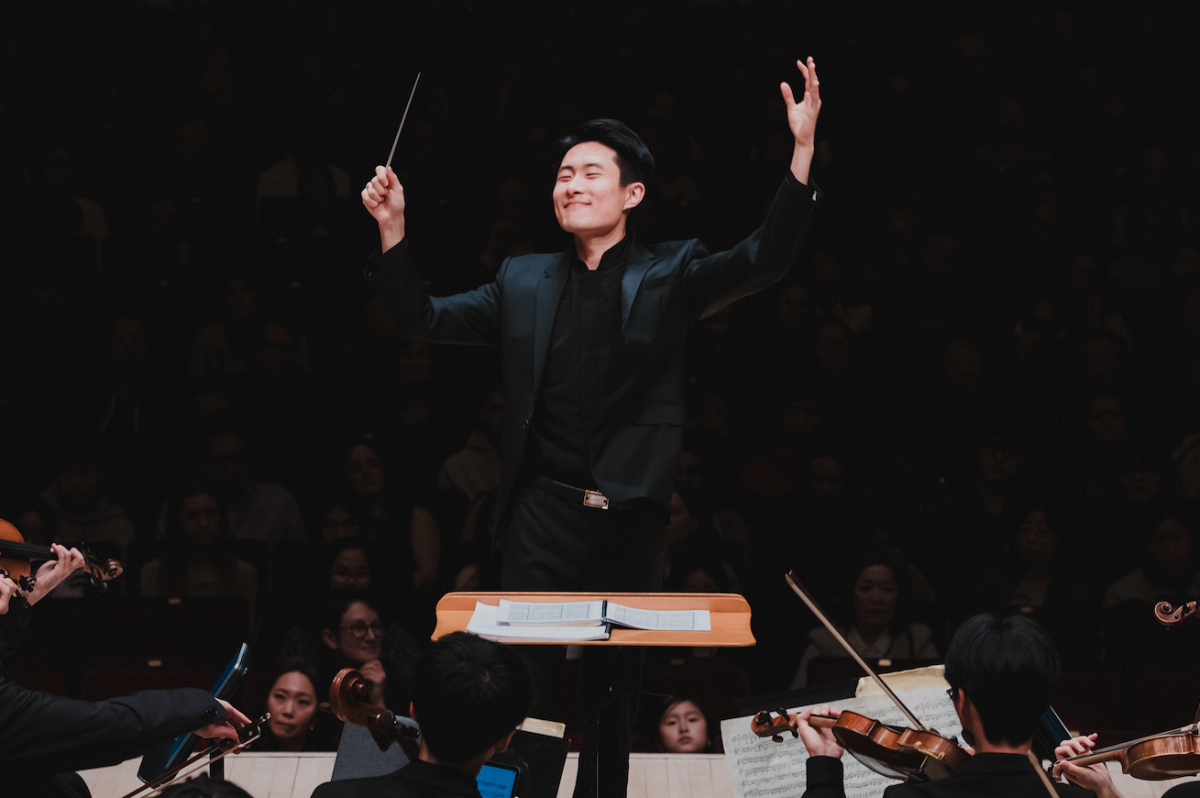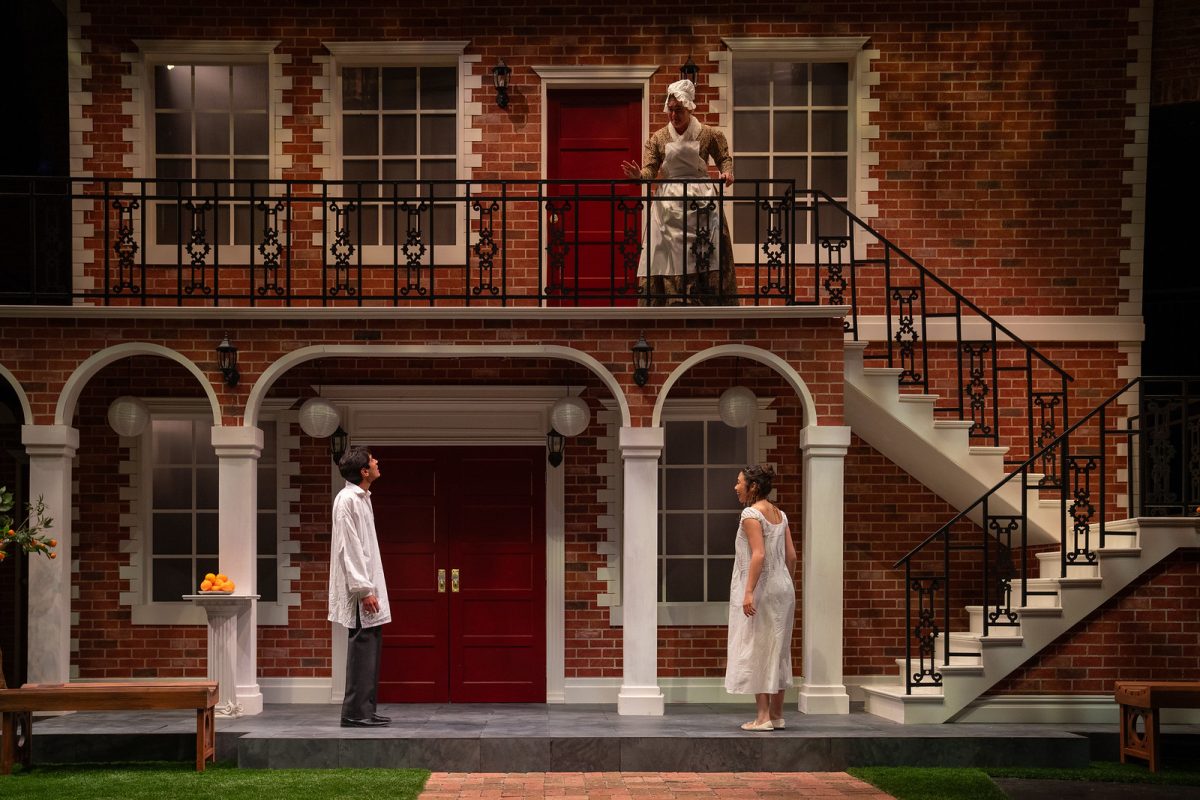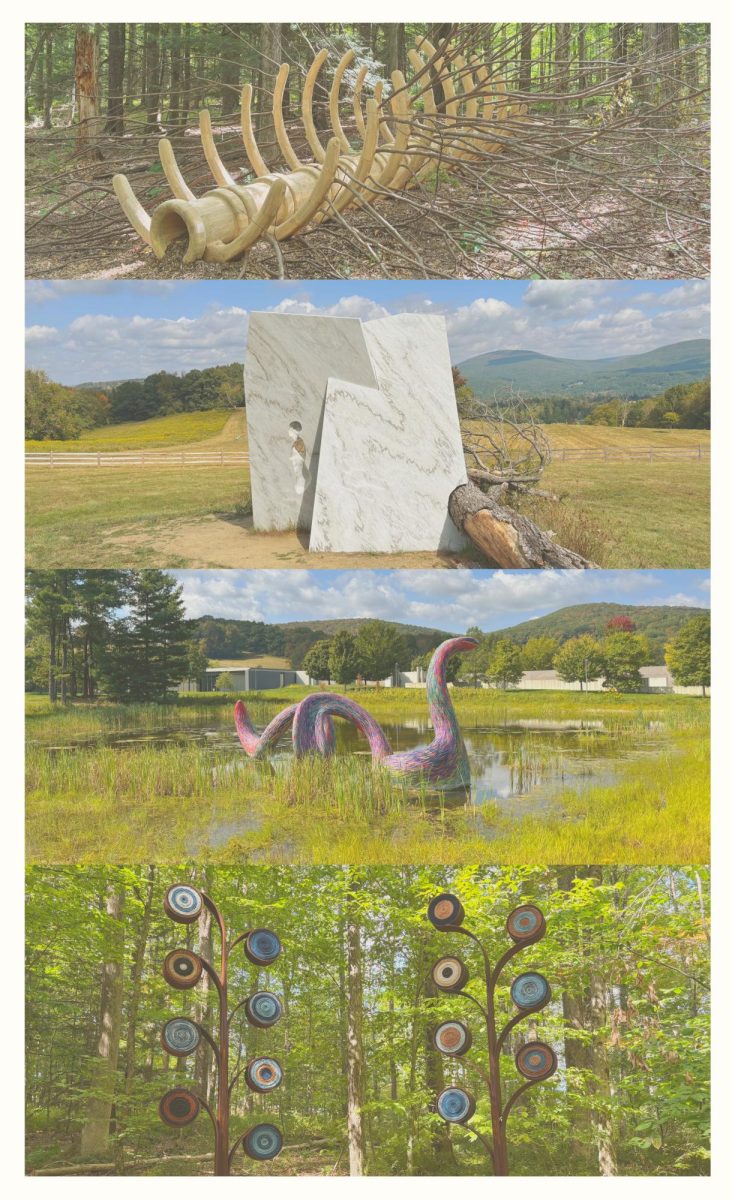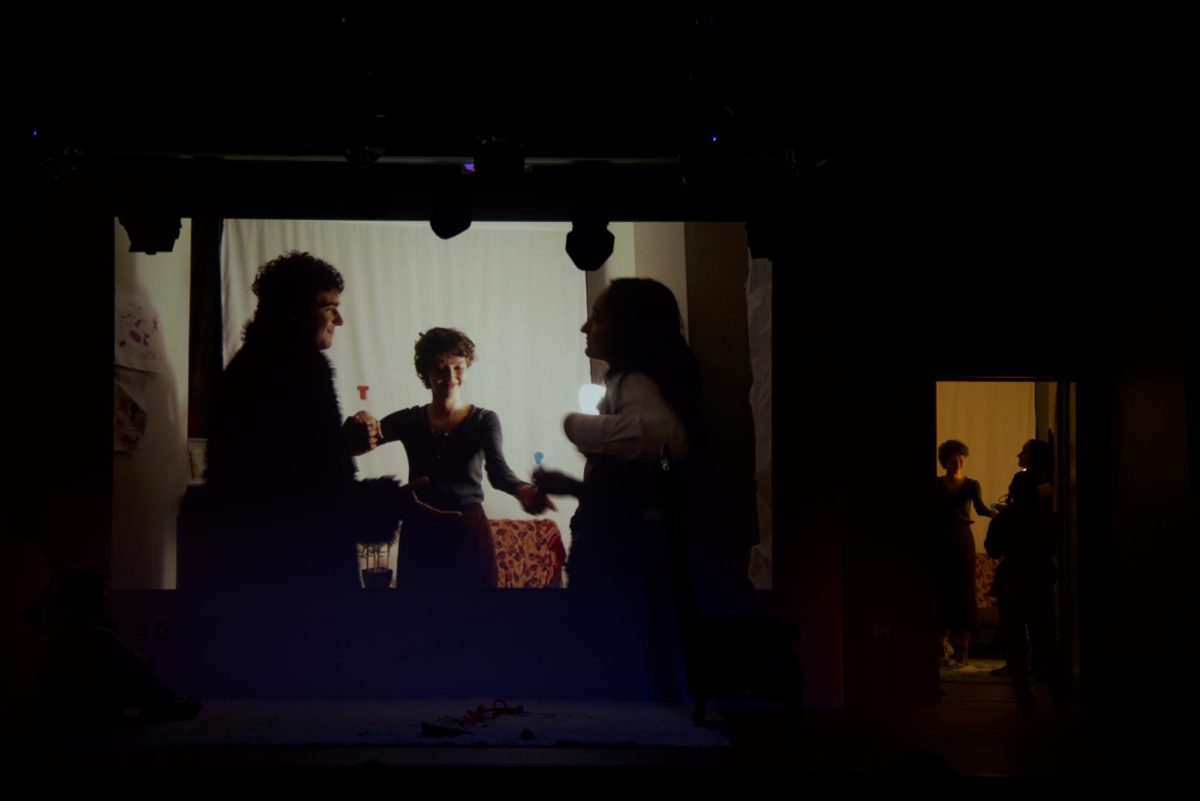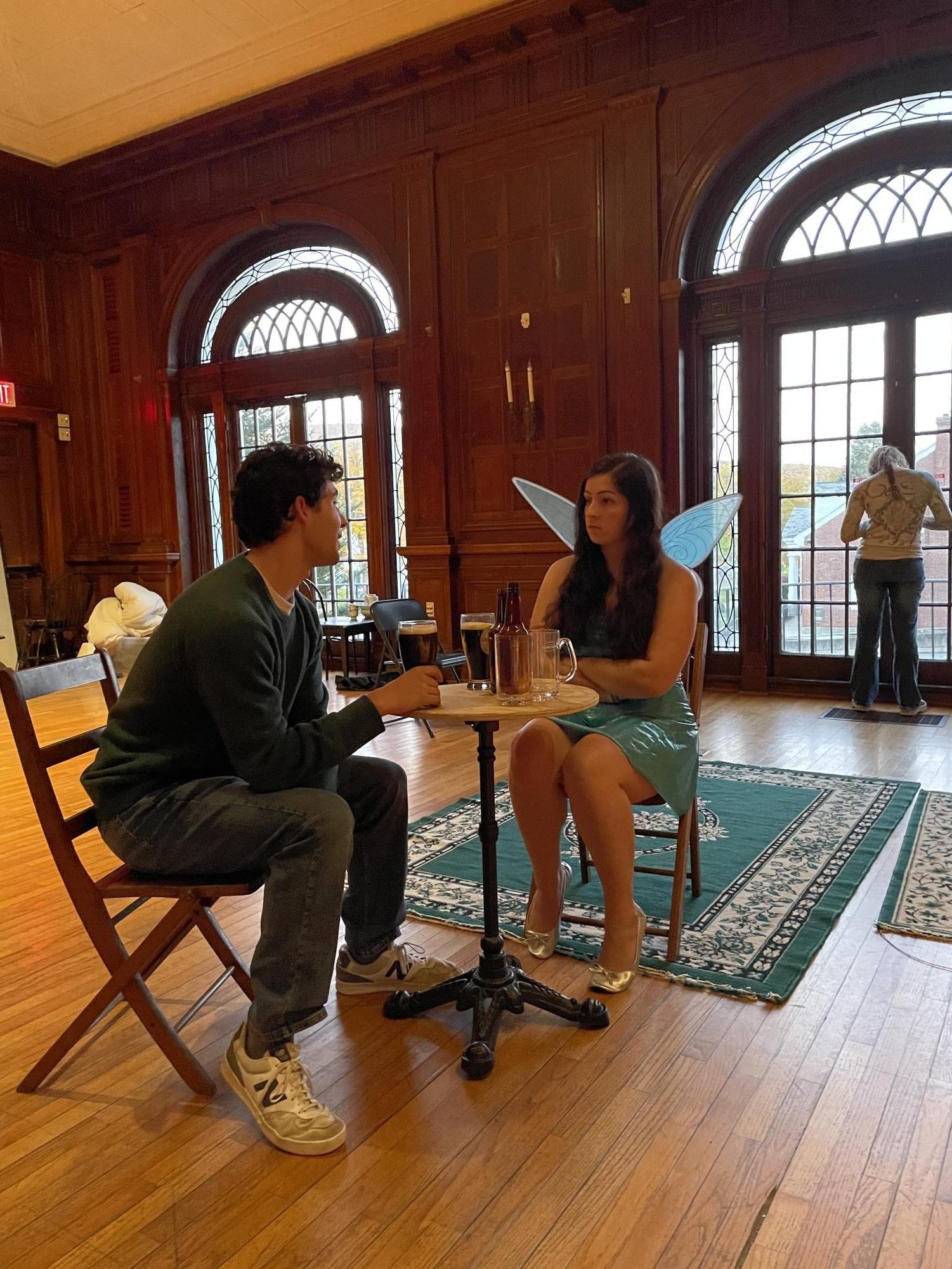
This year’s Cap & Bells Fall Play Festival will present two student-written productions, Fatherland by Kathryn Cloonan ’25 and The Monsters by Stella Rothfeld ’26. Performed over the course of four days in Currier Ballroom, the festival, by coincidence, features two plays whose protagonists contend with complex parent-child relationships and receive emotional support from imaginary characters. Fatherland will play tomorrow and Friday at 7:30 p.m. and The Monsters will play on Saturday and Sunday at 7:00 p.m.
[Editor’s note: Cloonan, an executive editor-at-large, was not involved in writing or editing this article.]
Fatherland is a dark comedy that follows Ronin (Spencer Rodman ’28) and his daughter Fia (Emma Hennessy ’26) who reunite after many years and journey to Ireland. Over the course of the trip, their imaginary friends, Wayne (Carl May ’25) and Opal (Arden Caldicott ’26), help them navigate past issues in their relationship.
According to May, Fatherland has a distinct comedic tone but nevertheless earnestly explores trauma. “Kathryn has this very unique ability to take audiences on this roller coaster that has them laughing one minute and crying the next,” May said. “She’s walking this knife’s edge between really ridiculous comedy … on the one side and really serious topics on the other.”
Hennessy also emphasized the depth of the play’s themes. “I would say that it’s mostly a show about memory and how to approach difficult topics,” she said. “Fia is dealing with a lot of pain and anxiety and forgetfulness, which you start to understand more about over the course of the show.”
Fatherland’s set designer, Leo Yihan Wang ’27, was tasked with supporting Cloonan’s vision within the festival’s budget constraints. “Usually [for] play festivals, the budget is very small — like very, very small — so we have to figure out creative ways to get around the budget while making the story happen,” Wang said.
When Wang first read the script for Fatherland, the image of returning to a grandmother’s attic after years popped into his mind. “I think the visual impression of … going back to a place you haven’t visited for a very, very long time and how that feels — that’s where it’s really important to me,” he said. To limit spending, Wang pulled pieces from the ’62 Center for Theatre and Dance that he believed created this sense of nostalgia, including vintage furniture and a rug he purchased for the previous play festival.
The second play in the series, The Monsters, is set in 1950s American suburbia and follows 10-year-old Ada (Hannah Pressman ’28) as she processes sexual trauma at the hands of her best friend’s father, Mr. Adams (Carl May ’25). Ada turns to her mother Sylvie (Faith Wendel ’28) for support but receives none. As she attempts to cope with her trauma, Ada begins to hallucinate monsters who soon take over her world.
Rothfeld, who also directed the play, cited a class on Shakespeare as one of her inspirations. “I realized I wanted to write a show that deals with how non-earthly beings can affect material change,” Rothfeld said. “These ‘demons’ are really just trying to help [Ada], even if they don’t necessarily know it.”
The sensitive subject matter of The Monsters presents a particular challenge for both the cast and production team given that student actors both portray a child survivor and her abuser. “I think that [it] was also important … for the cast to really understand the full psychological scope of this play,” said Jackie Zhang ’27, the play’s assistant director, dramaturge, and set designer.
“It’s definitely difficult to play a role like that,” Pressman said. “The show does turn very dark very quickly.” Despite the heavy subject matter, Pressman expressed her enthusiasm about participating in her first play at the College. “We will check in with each other before rehearsal starts, and we still incorporate elements of fun into our rehearsal process,” she said.
Zhang aims to capture the surreal side of the show through their set design, which features a reflective floor, a curtain in the back, and two mirrors on the sides of the space. “It creates this feeling of entrapment in this community, like … how the community aids in the cycle of abuse, and how it’s so difficult to escape from something like this,” they said.
Rothfeld said she looks forward to discussing the play with audience members to hear their thoughts on the piece. “I purposely left a lot of things vague and ambiguous,” she said.
“Even though it is rooted kind of in these concrete themes … the show itself is fairly abstract and has a lot of interpretations,” Pressman said. “Some of these interpretations … help people process the show in a way that’s not just so heavy and depressing all the time.”
May, a cast member in both productions, said that the plays explore overlapping ideas but also differ in critical ways. “They’re exploring some of those similar themes in very different contexts, and they have very different things to say about them, but I think that it’ll be up [to] the people who come to both of them to be the judge of that,” he said.



